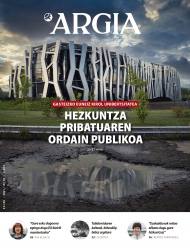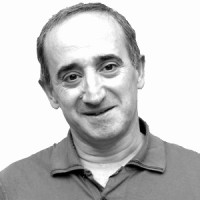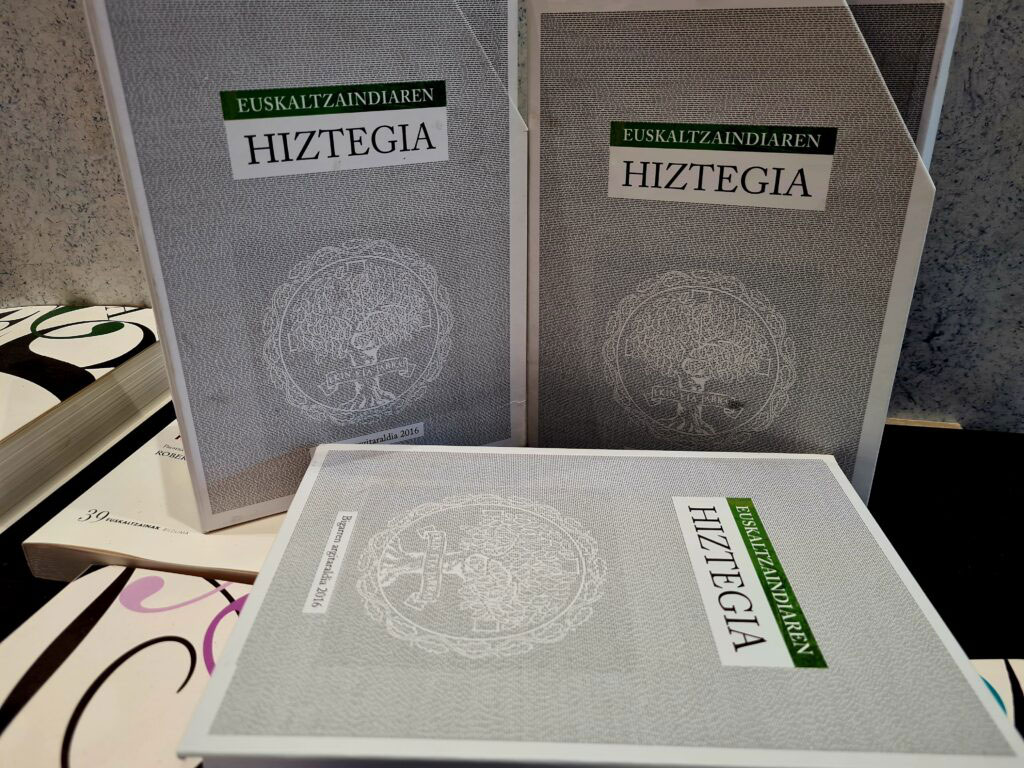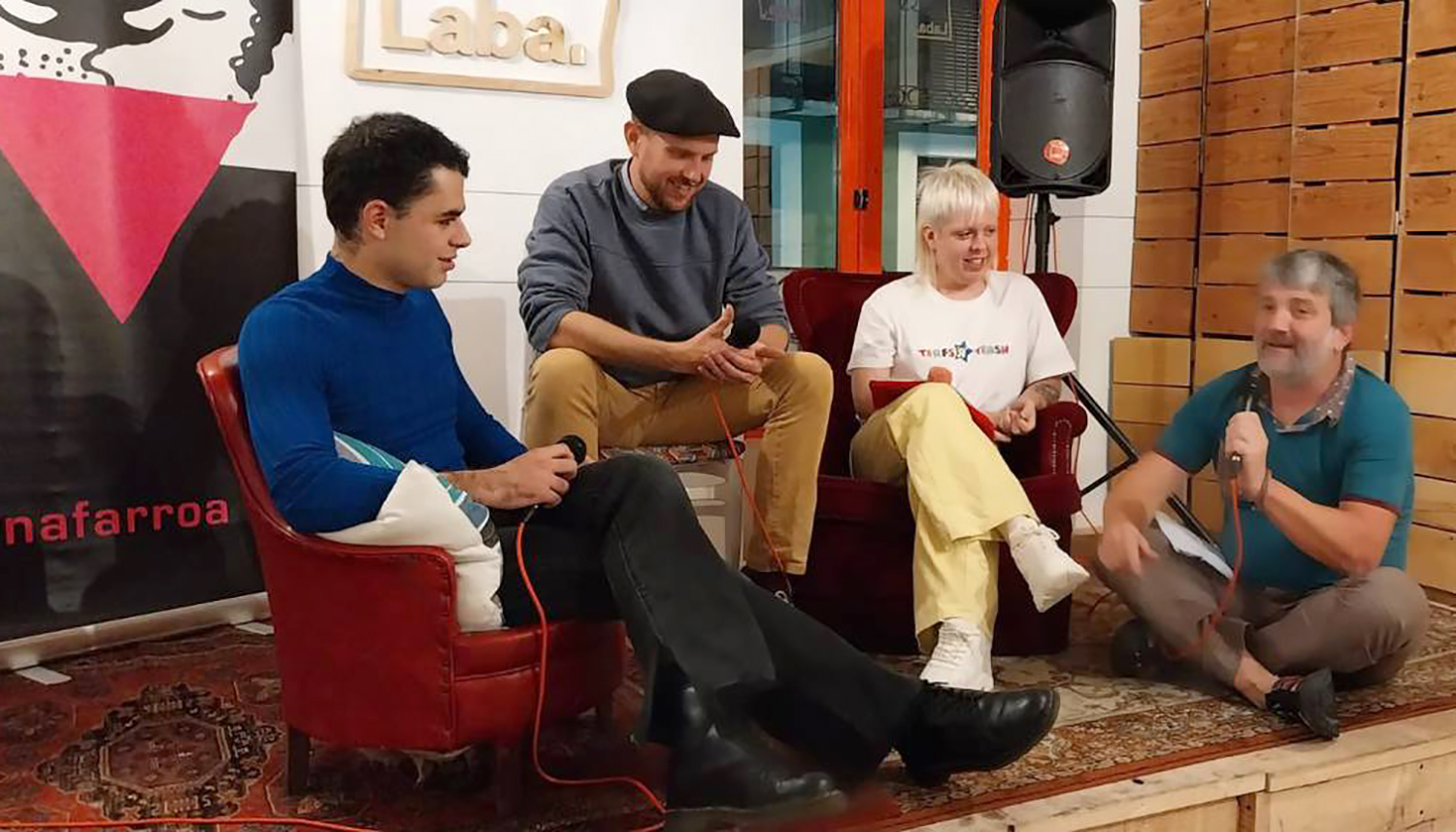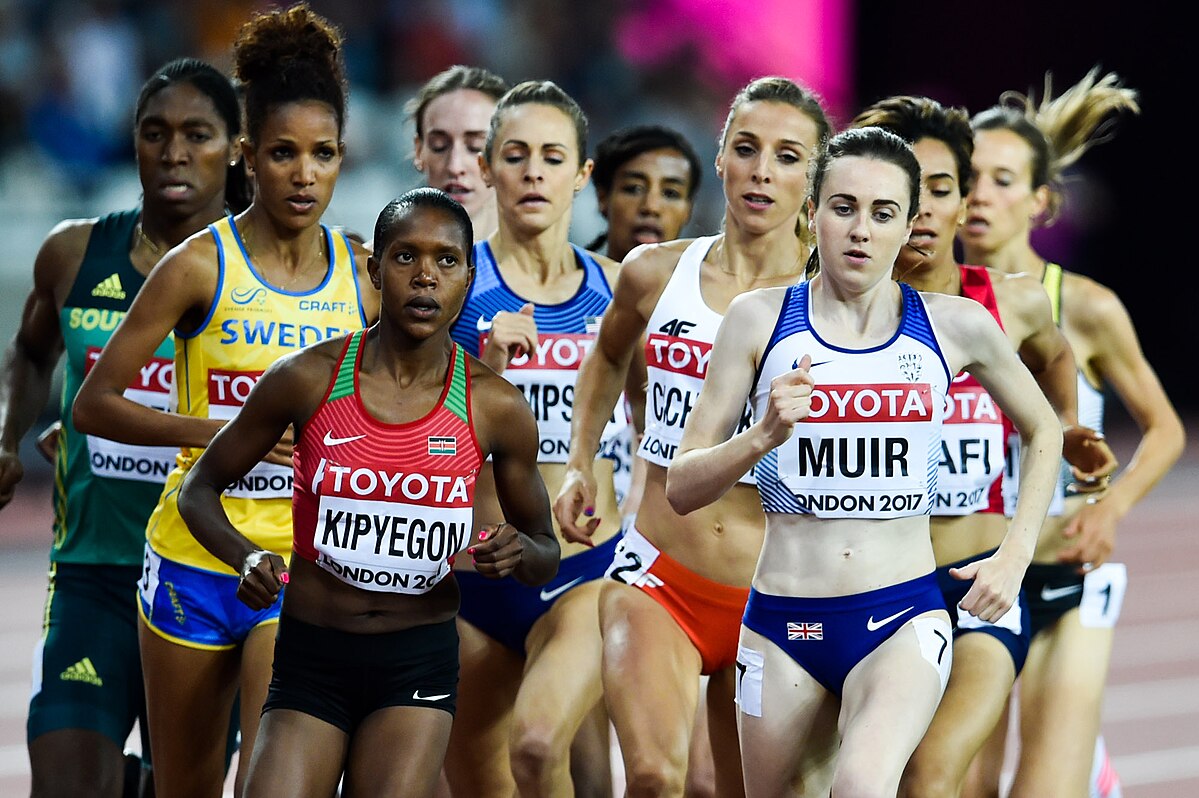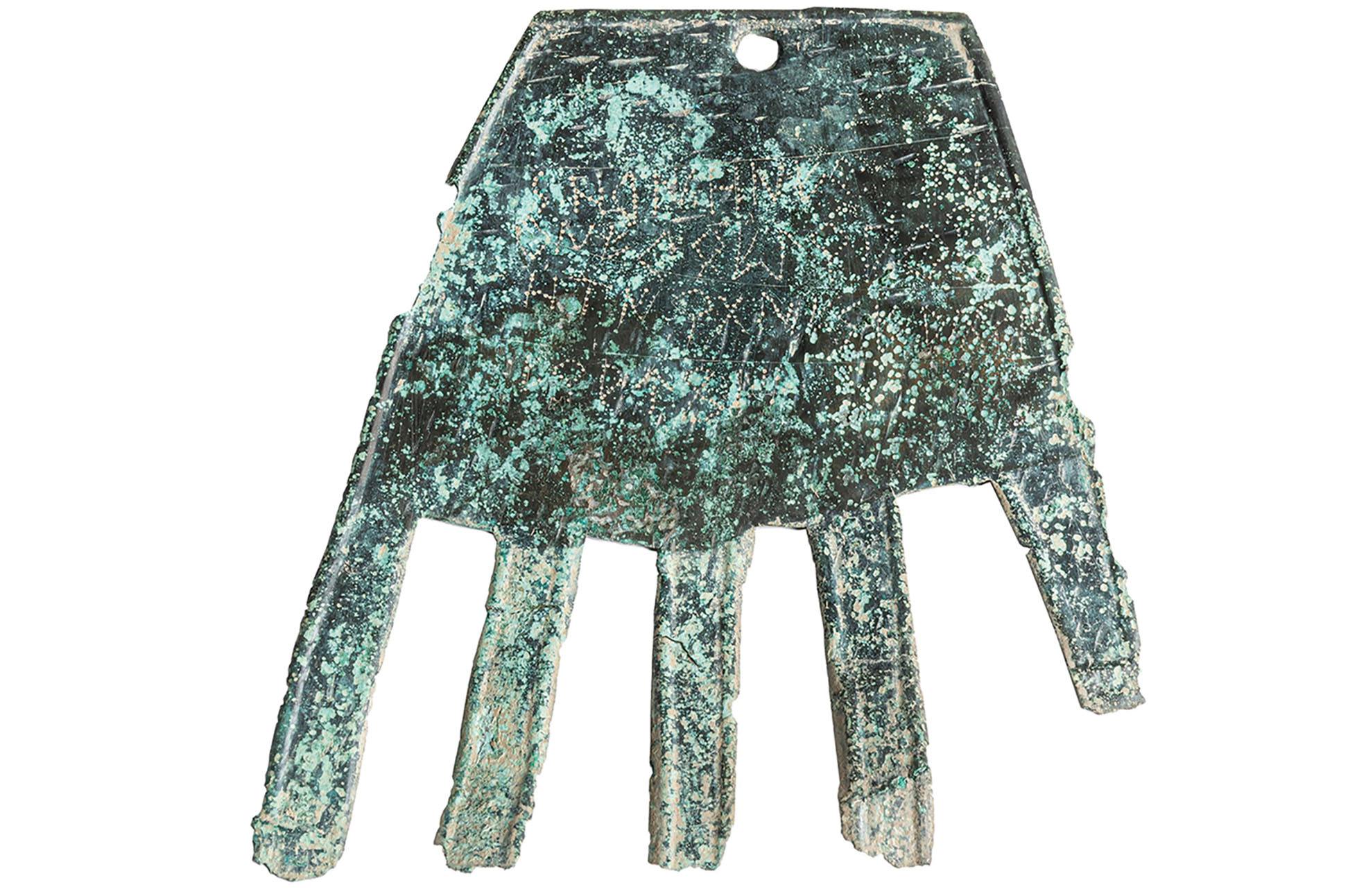"Humans are probably too brave when we say there's no language anywhere else."
- Beatriz Fernández (Portugalete, 1964) has written the book Hizkuntza gogogoan (Erein, 2021). It is not the first, it is the third publication that writes about the language related to dissemination and research. The book lists the questions raised in class with students, so that they can be understood by everyone. Excitatory questions: Are human beings the only ones able to speak? Do Xibarta whales always sing the same song? What is language?
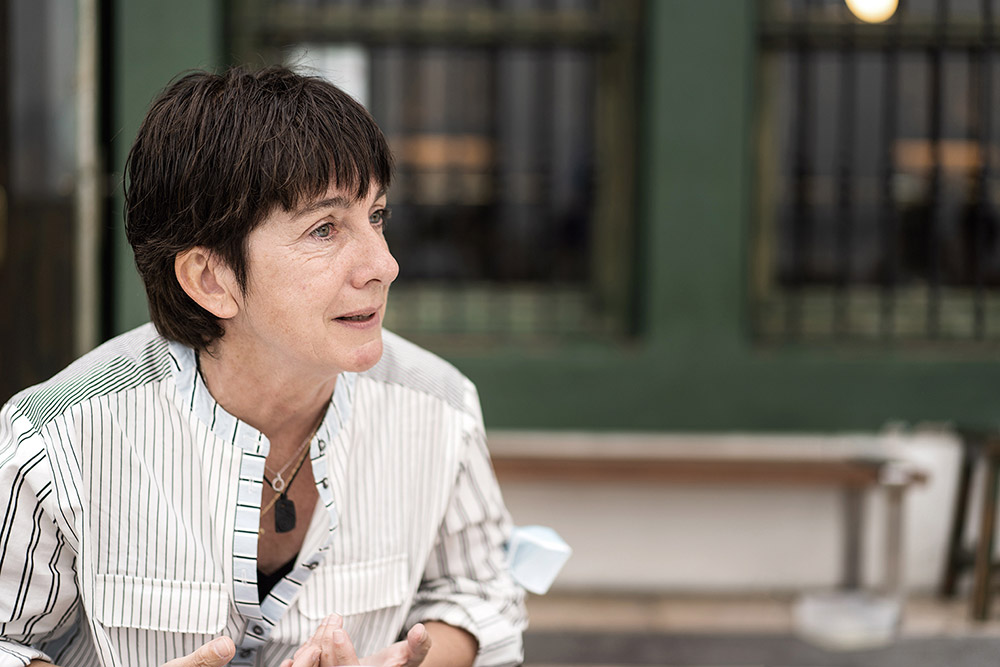
You say that we do not look properly at languages, yes to the skin, but no to the crumb. What do you mean?
Most of the doubts of the Basques are about the regulated language, that is, what is wrongly said and what is well said; about the unified Basque, the standard, the language received, elegant and formal. These are some of the most important questions about language. It is perceived in the school itself. Explain to your students what linguistics is at the first level and they are surprised, the issues that appear in the book don't know they have to do with language, they don't even have clues. They don't know what aphasia is, what a pidgin is, creoler, they don't know that, like the Basque language, other languages are genetically isolated. I believe that all these issues should be in the air.
Aside from regulated grammar, the Basque Language Academy, languages…, the biological approach is lacking. We are Basques and we are proud, Euskera and Punto, but we are human. Understanding language is a way to understand what Euskera is. Language as competence. This ability allows you to be Basque, Catalan or Gaelic. There are many things happening to speakers of other languages that happen to us in the Basques, and it seems to us that we are not, that we are the only ones in the world. This is the wrong approach. For example, an Aphasic will have some signs that only appear in Basque, but the signs that the speaker with Brocca's aphasia [disorder of the expressive areas of the language] has are the same in Basque and other languages.
"The Basques have nurtured the myth: we are different, the first language of Europe, is not indo-European… Etxekalte, of course"
In that area we have quite a few legs.
I don’t know if the word is paw… we have a lot to learn compared to language, the Basque language in our case, people’s concern and great curiosity. Zakilixut puts on the table almost every day issues related to language. This is possible in a language country. The concern is very limited, it is limited to our language, to our follies, to this word that is said in our country that is not said in other peoples, and that is why we are proud. As for language, it's nothing. It's a grain of sand.
He has tried to break the myth of difficult and easy languages.
I'm not the first one. The exercise was carried out by the Madrid linguist Juan Carlos Moreno Cabrera, who has a book related to this topic.
I am now studying Catalan. I have another romance language in my brain, and that really helps me study. Well, it can also become an obstacle due to the closeness between the two: working in Spanish and Catalan for Treballar. There may be typological similarities between several languages. Maybe they're not superficial similarities, but when you start looking at the microscope, you see that there are great similarities between the two. Catalan, Spanish and French may exist similarities, insofar as they are languages of the same family, as there may be similarities between people of the same family, although not necessarily. So, if you start studying Catalan knowing French or Italian, you will find it easier to learn, for example, than if you are an Inuit. Because the Inuit have another linguistic family, farther away, with other characteristics. On the other hand, two languages may not belong to the same family and therefore do not have a kinship, but at the same time coincide in certain characteristics. For example, if a Basque learns Japanese, he will see right away that things are ordered in a similar way in Japanese, that is, first the subject, then the complement and finally the verb, as we do in Euskera. In this sense, the Basque is more similar to Japanese than to Catalan, since in Catalan the subject is first placed, then the verb is placed and finally the complement.
Apart from that, is it harder or easier to say if a language is more difficult? Although she was the daughter of the 1960s, she studied English at the ikastola, but oysters! Start learning the English prepositions!
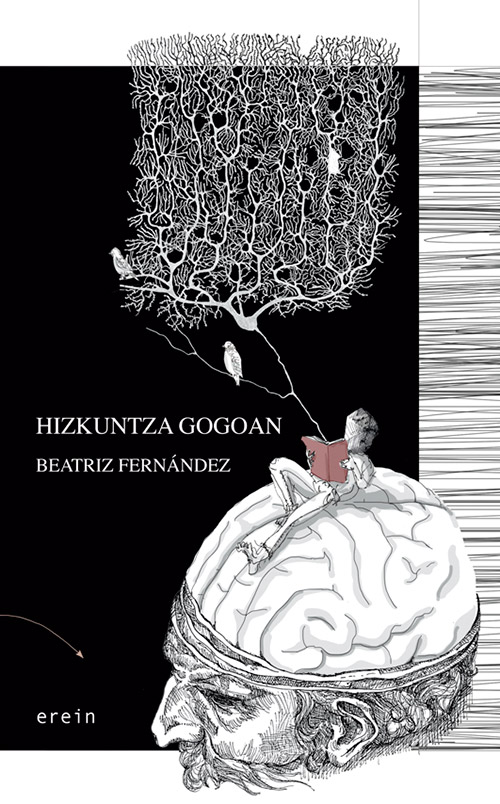
Is it a myth intentionally fueled by the existence of simple and difficult languages?
Of course. If there is political intention, let us not learn Basque. But I would say that the Basques have also nurtured the myth: we are different, the first language of Europe, is not indo-European… Etxekalte, of course. Because it's also said: it's hard, you can't study -- I know linguists around the world and I've met New Yorkers who know Euskera, Czechs, Poles. It's not true that you can't learn. This is demonstrated by speakers of different languages, and I am not just talking about linguists. In Ondarroa, the wolof speakers have learned Basque and will tell me what the wolosphere and the Basque Country have to do.
It cannot be said that you cannot learn. It is not in our interest to tell the Basques, we are against ourselves. Anyone can learn, it will cost you more or less. Not having sisters, our language may have that drawback, but you can learn. Our morphology seems tremendous to us, but it starts to learn the navajo, to see if there is no difficulty there. Ours is no more difficult or easier, it is no more than another language of the world.
Just one more language.
For me, from an objective point of view, yes, but it's the language I'm wearing in my heart. However, it is true that a number of typologically differentiated characteristics have been collected in the Basque Country. Among the external linguists, the Basque language creates the fascination that does not generate any other language. You tell someone you're an expert in Euskera and he comes to ask you about coffee. Apparently, Euskera is not just a blue eye, but a blue eye more this and others. In the Basque bag there are special features that are not found elsewhere. Maybe the same thing can happen in another language, it can have some special features at the same time, but maybe not its exotic characteristics. We put things upside down, we have an ergative language, we have structures like nor-nork ... When you accumulate all of them, in the end you say, oyster! Look at what curious flower we have here.
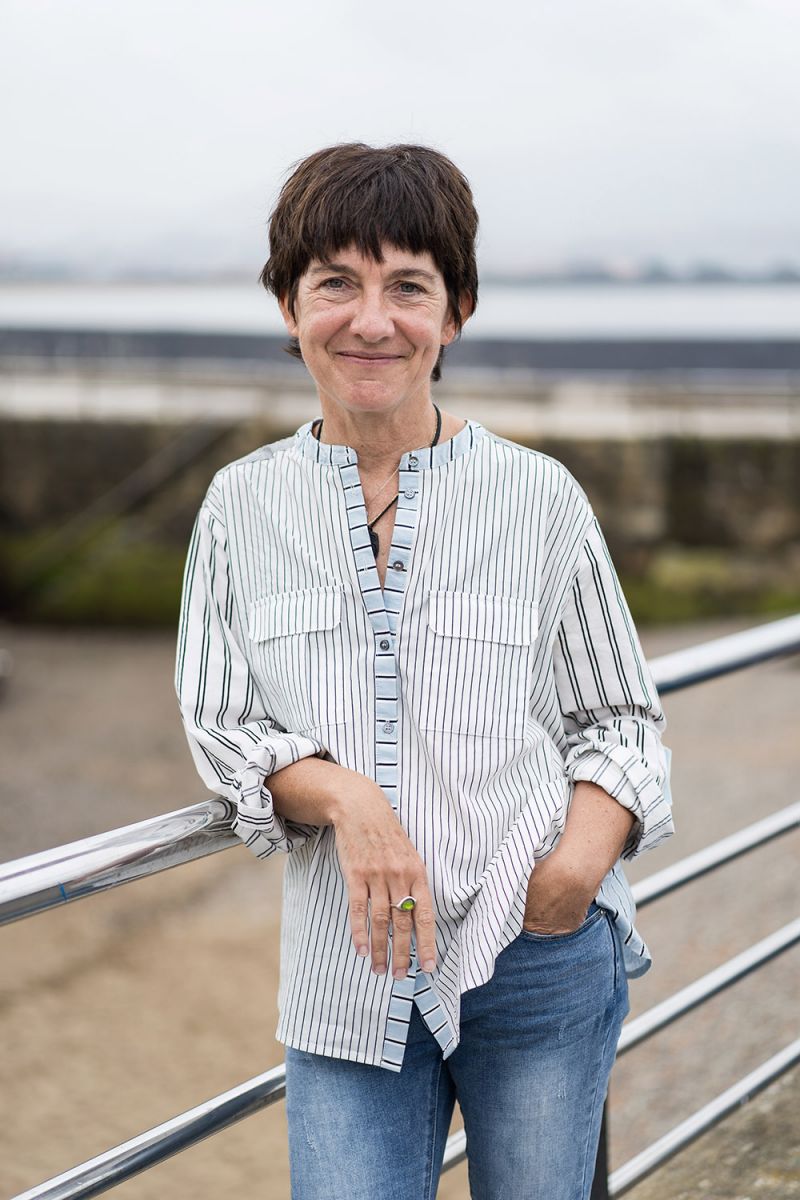
I don't know how we're going to fix ourselves in this question so we don't have spoilers. Are we the only animal with language?
I realize that I've evolved. I had a more anthropocentric perspective than I have now. I have about 80 18-year-olds every year and I get questions from there and here. I've always told them: human language is unique, you won't find another one, but if you get to look, the characteristics of human language are these, and if you take the bag of all the characteristics you will find it hard. What happens when you take that view, as I've been taking it for years? I'm going to do a reconnaissance, as Hertzainak did in that wonderful song of the past. If you take this view, then you do not have to compare human language. If you say, “there’s nothing like me, so you won’t be able to look for something like me.” This greatly reduces the field of research.
I am not an expert on this subject, but let us do one thing. If you put all the characteristics together, you won't find them, all right, right, right, but let's take a feature and look for it somewhere else and we'll find it. Look for another feature and we'll find it, and another one and another.
There is talk of human language and communication systems, I have done so when teaching, as if what other animals have is not like language.
If human beings are so special, what is our singularity in? You'll have a hard time finding a feature other than ours.
The book contains examples of what you just told, the communication system of the xibarta whales, the singing of birds...
The song of birds is one thing and our performance is another, but look at what the experts who study them have done, analyze some speeches of birds. You'll see how it's structured, how sections and units have a hierarchy, as if they were Lego shortcuts. That is, some of the characteristics that appear in the song are also found in our environment.
It seems to me that perhaps when we say that we are too daring, that no, that there is no language anywhere else. Over time, we know more and more things. I would say: give the science time, and maybe the ones we took the squid out, just in case, it's better to start lowering the squid a little bit.
"If human beings are so special, what is our singularity in? It will be hard for you to find traits other than ours."
You spoke of bilingual hearts, that is, of relations between language and emotions.
I have told you before that all languages are similar or the same, I would claim it, that is what I believe. But, of course, it is not the same as the experiences that each has with languages. If a person tells you "I love you" or "I love you", the memories that will carry your memory will be transported along with language. Languages don't move us equally.
Nelson Mandela's memorable phrase has to do with the fact that if you speak a person in your language that will go to your heart and if you speak in a language that knows that will go to yourself. Although the heart is in the head, in the brain it's not the same, you're not thrilled the same. According to Mandela, there is a belief, but researchers also show him that he really doesn't get excited about what he's being told in his mother tongue in the same way as what he later learns.
The book makes special reference to the reactions of the speakers with the words taboo, the curses. They have social and emotional repercussions, they come out of a fairly neutral discourse. People investigate people's reactions using taboo words and vines in different languages. What have you seen? You've seen that the emotional response is not the same in all languages, but it generates an emotional reaction different from the one that language uses. Linguists have their field of research there.
Researchers have shown that we react differently in the original language. But you have come to the conclusion that we can have bilingual hearts.
I haven't been tested in the lab, I haven't been a data donor for researchers, but I really feel it would take years to know the emotional reaction of speakers like me [their original language is Spanish and Euskera in the ikastola that they learned as a child]. I am sure that it affects me in the same way both languages. The reason may be that Euskera is a language that, although it is not my mother tongue, I know from a very young age. Ms. Agurtzane of Bermeo told me about the Basque rías, she was a young woman of living genius. Apart from that, my emotional relationship with the Basque Country has been from ikastola, unlike other Basque speakers, who could be Euskaldunes of origin, but who have broken it with the Basque.
If you were to explore speakers like me, what conclusions would you draw? I have had a close relationship with the second language, the Basque language. The author of the book Lost in translation, Eva Hoffman [her original language was Polish], pointed out that for her the word river had no connotation in Polish, it did not have the same emotional echo. But one day, in EE.UU. He has been teaching literature for many years in English, he realizes that English excites what Polish excites!
This means that at a given moment, metaphorically speaking, of course, you can become a bilingual heart. I think I have it.
Is it important to use a language correctly? To what extent is it so necessary to master grammar or to have a broad vocabulary? I’ve always heard the importance of language, but after thinking about it, I came to a conclusion. Thinking often involves this; reaching some... [+]
Ansorena´tar Joseba Eneko.
Edonori orto zer den galdetuz gero, goizaldea erantzungo, D´Artagnanen mosketero laguna edo ipurtzuloa, agian. Baina orto- aurrizkiak zuzen adierazten du eta maiz erabiltzen dugu: ortodoxia, ortopedia, ortodontzia... Orduan (datorrena... [+]
We are seeing more and more spelling errors in the writings of social networks, not only of young people, but also of the media. Some have become so common that they hardly hurt their eyes.
In this way, we can read in Spanish many things like: "You lose a dog," "It'll be that or k... [+]
Euskaltzaindia's motto is "ekin eta jarrai" ("ekin eta jarrai"), the outlawing of Euskaltzaindia. I don't know why the Academy wasn't outlawed, all three words appeared on its logo. The allegations have been made with less - and (those of one age remember the cassette of The Mondragon... [+]
Euskararen biziberritzea Ipar Euskal Herrian jardunaldia antolatzen du ostiral honetan Baionan Euskaltzaindiak. Euskararen alde egiten dena eta ez dena eztabaidatzeko mementoa izango da. Eragileak eta politikariak bilduko dira egun osoan.
In a one-hour commute to the workplace, I am accompanied by the car radio. On yesterday's journey, I had the opportunity to enjoy a short story program, as the last port of the road, full of curves, began in Karrantza. Short legends, yes, of few words, but stories of great... [+]









